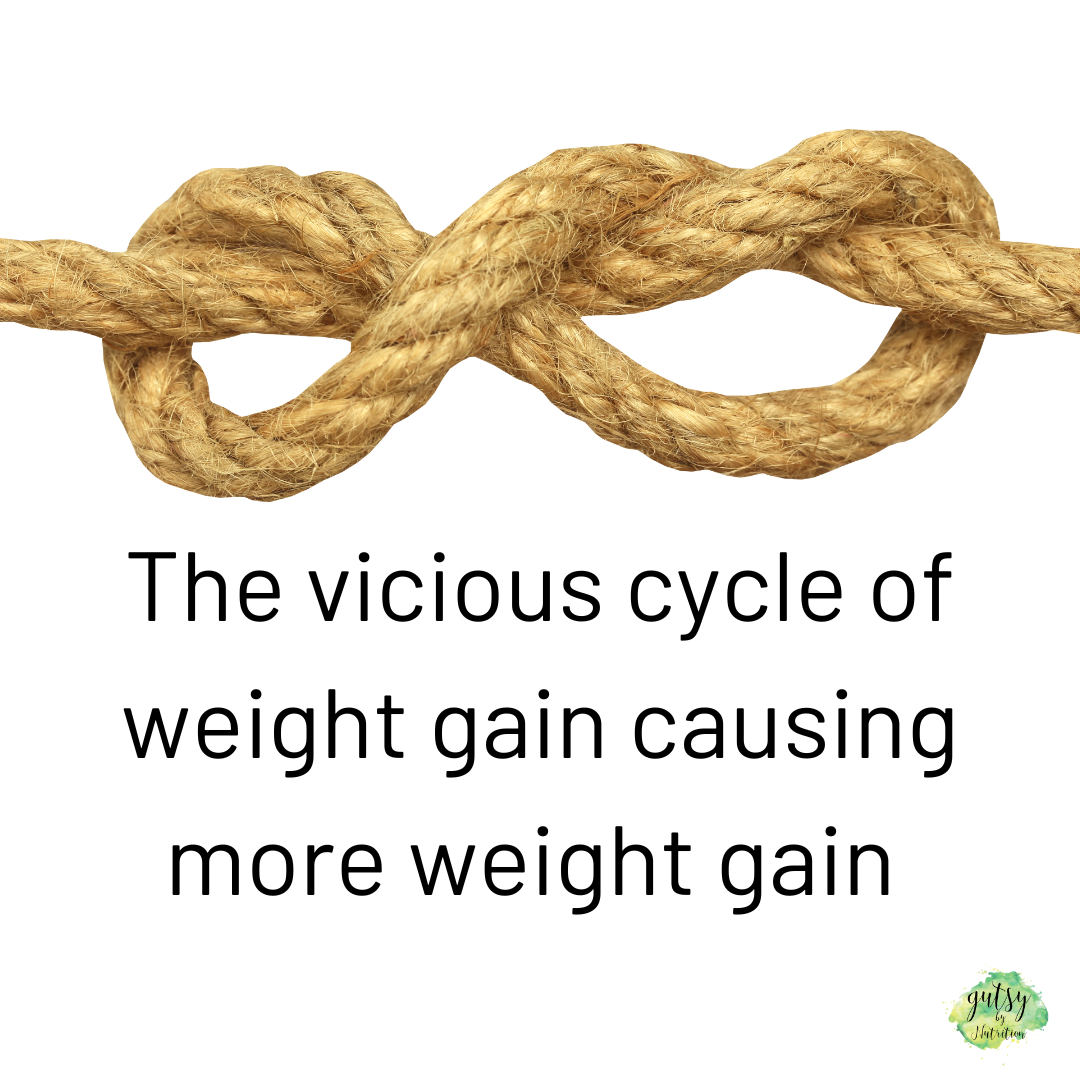the vicious cycle of weight gain causing more weight gain
Being overweight can contribute to the dysregulation of stress hormones, particularly cortisol, creating a cycle of further weight gain.
overweight, stress hormones & cortisol
Here's how…
Fat cells, or adipose tissue, contain enzymes that can convert inactive cortisone to active cortisol. As body fat increases, especially in visceral or organ fat deposits, there are more sites for the production of cortisol. In addition, adipose tissue secretes signalling molecules, some of which can stimulate the production and release of more cortisol
Being overweight is also often associated with chronic low-grade inflammation, which can activate the hypothalamic-pituitary-adrenal (HPA) axis, leading to increased cortisol production. In fact, inflammatory cytokines released by adipose tissue can directly stimulate the HPA axis and contribute to elevated cortisol levels
Insulin resistance, common with being overweight, can influence the HPA axis too, leading to higher cortisol levels. This elevated cortisol can further contribute to insulin resistance, creating another cyclic relationship between stress hormones and metabolic (energy) dysfunction
Overweight people, particularly if there’s abdominal obesity, are at a higher risk of sleep apnoea, which can disrupt the normal diurnal rhythm of cortisol secretion, leading to elevated cortisol levels
Leptin, a hormone produced by fat cells, plays a role in regulating appetite and metabolism and is associated with being overweight. Leptin resistance, when there’s too much leptin, can contribute to the dysregulation of the HPA axis and cortisol release
Stress hormones can also impact your thyroid, slowing down your metabolism and potentially leading to reduced energy expenditure and an increased likelihood of fat accumulation
You can see how the interplay between being overweight and subsequent elevated stress hormones forms a complex feedback loop, potentially creating more challenges for weight management.
Breaking this cycle often requires a multifaceted approach that includes lifestyle modifications, stress management techniques, and addressing underlying metabolic issues with targeted food and supplements.

